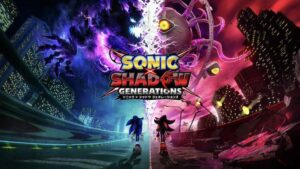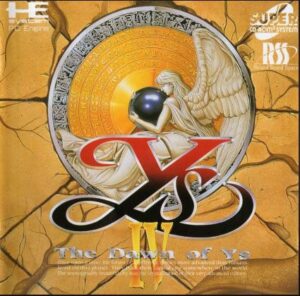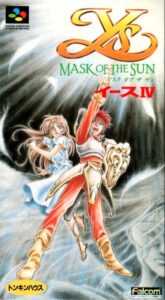Star Wars Day may have passed us by, but celebrations of this property will continue throughout the month. Even if you’ve never seen a single Star Wars movie, you are likely aware of the multibillion-dollar entertainment empire that’s been created. Books, movies, television, video games, and much more… Star Wars has it all! When it came to Star Wars video games there were adaptations and retellings of the films., But as time went on Star Wars video games grew more ambitious with the telling of original stories. This opened the door to enhanced creativity in storytelling in Star Wars games and the focus of today’s article is no exception. This game is also a part of every conversation when discussing the most influential role-playing games of all time. This is Star Wars: Knights of the Old Republic!

Overview & Synopsis
Knights of the old Republic or KOTOR for short originally saw release in 2003 for the original Xbox as well as Windows PC developed by Bioware,. who had, to this point in time established themselves with the Baldur’s Gate series of games. The game would also inevitably be ported to Mobile devices and the Nintendo Switch by Aspyr. All versions of the game were published by LucasArts.
The game is set approximately 4000 years before the events of A New Hope, focusing on the era of the old Republic and specifically after the events of the Tales of the Jedi comic book series. You assume the role of a soldier of the old Republic as the Sith empire, led by Darth Malak, wages war against the old Republic and the jedi order. If the war continues as is, the Republic will crumble. You must learn the ways of the force, gather your allies, and become the galaxy’s savior or conqueror.
While KOTOR is far from the first game to have you create your own jedi knight (I automatically think of Jedi Academy and Jedi Outcast), KOTOR was the first to allow you to shape the galaxy and the story in front of you as the game progresses. The writing is easily the best part of the game and while you may notice references to the lore, KOTOR is set millennia before the movies, giving them maximum freedom in how the characters and setting are portrayed. Your protagonist is silent, and you select their dialogue from a variety of options, an aspect that long-time Bioware fans are familiar with.
But it won’t be a lonely journey as nine excellently written companions will be joining you on your quest, all of which have gone on to become iconic staples in Star Wars media. Each companion has their own reasons for travelling with you and each has their own personal quest line that you can help resolve. KOTOR was far from the first party-based RPG ever created. But it was one of the first to craft such finely written companions who react to and have an impact on the story. They have minds of their own and will comment on the actions you take, voicing their approval or disapproval on such matters.
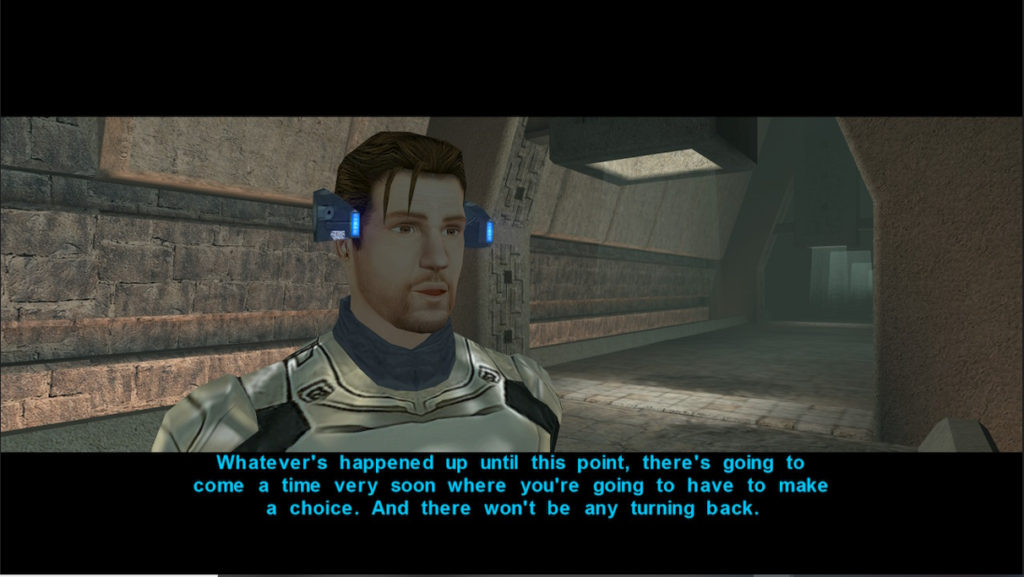
KOTOR also raises many questions about morality, choice or destiny, redemption, and love. Drew Karpshyn of Bioware was the lead writer for the project and he would go on to become one of the narrative minds behind the Mass Effect 1 & 2. Despite being over 20 years old the writing of KOTOR is just as poignant today as the day it launched. Admittedly, the gameplay and graphics have aged but the writing has not!
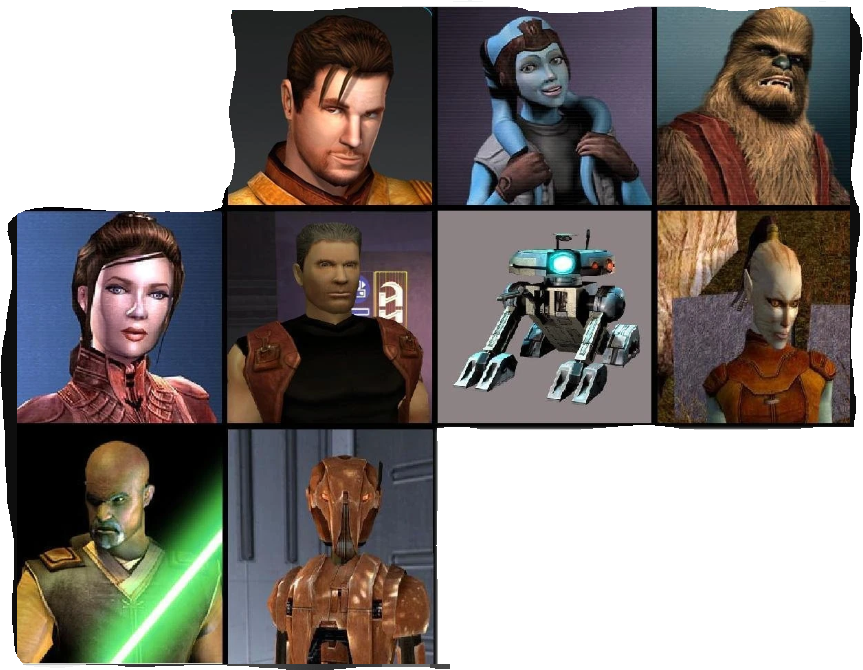
Gameplay
At face value KOTOR seems like your run of the mill turn based combat RPG, but that’s where Bioware did something special. Combat is divided into rounds with players, allies, and enemies acting and reacting in real time. Now what truly sets the combat apart is the d20 system and the versatility available to the player. If you desire you can walk up to your opponents and simply strike them with a blaster, sword, or lightsaber. You can also lay traps for enemies, place mines or grenades, and lure your enemy in, to say nothing of the eventual force powers that are at your disposal. How you engage your enemies is entirely up to you. If you feel the game is moving too fast in the heat of the moment, have no fear as you’re able to pause the combat at any time, giving you all the time you need to organize your thoughts and strategize
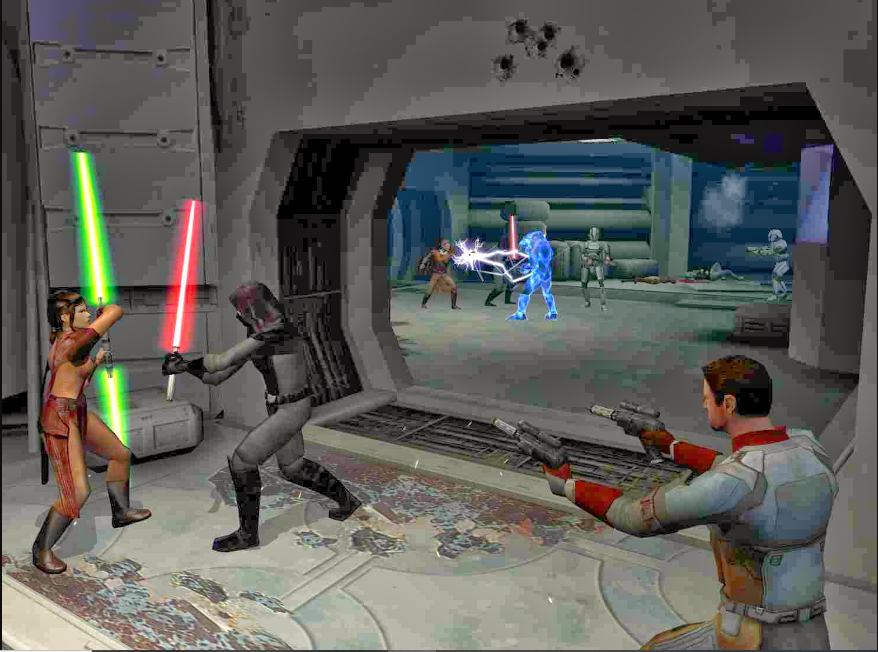
Now executing various attacks is as simple as inputting the command, but how much damage you do and suffer, as well as whether you hit or get hit is determined by the d20 system. This system originated from Wizards of the Coast’s Star Wars Roleplaying Game, which took inspiration from Dungeons & Dragons and KOTOR is the first computer RPG to use the system. To summarize the system, before any action is carried out the game will instantaneously calculate the roll of a 20-sided die to see if the action passes a stat check. The system will carry this out automatically without any feedback from the player., Players do not need to have any knowledge of the d20 system or D&D in order to enjoy KOTOR. The rolls can be influenced in your favor through the equipping of better weapons and armor as well as certain skills and force powers.
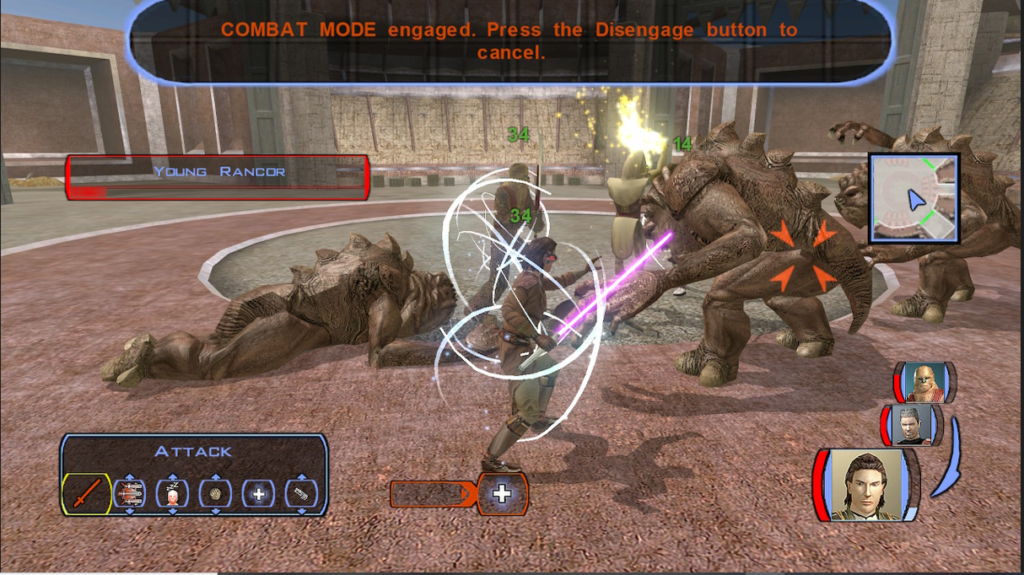
Now with any deep RPG, combat is but one part of the experience. KOTOR will have you do more than just fight. Along your journey you will come across various obstacles, be it a door that needs to be hacked, a person you need to convince to aid you, or treasure containers that you need lockpicking skills to open. The ability to do all these things is determined by your general skills. These skills may have additional combat use applications, but they largely exist for the sake of the player interacting with the world. However, even the most diligent of players will not excel in every skill. This is again where your companions come in., Much of KOTOR’s strategy and decision making comes from selecting companions to accompany you who complement your weaknesses both in battle as well as in these particular skills.
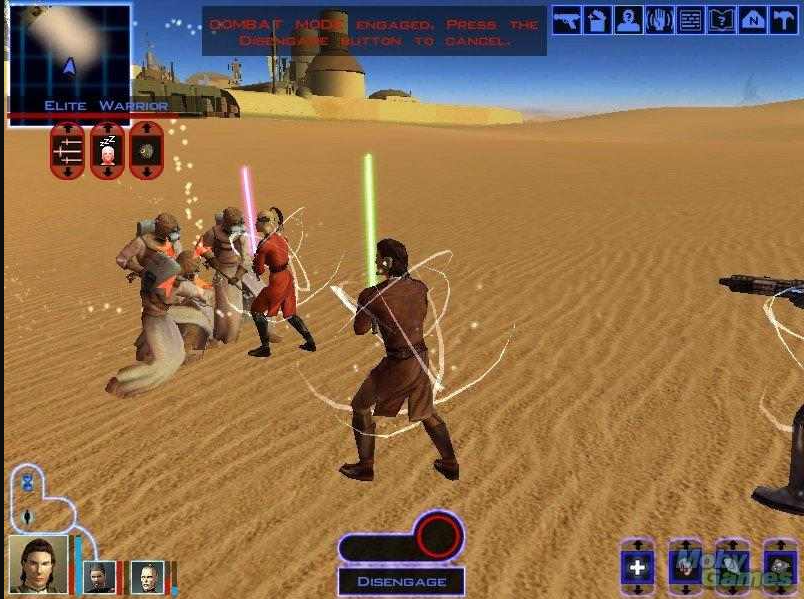
Naturally KOTOR has a plethora of side content including minigames such as space battles and swoop racing. However, the true time sink is the side quests, as many in the galaxy require your aid and it is entirely up to you whether you wish to provide that aid. Much like how the story is influenced by player choice, so are the side quests. You can follow the path of an honorable jedi, become a sith more merciless than Darth Malak or walk the line between. The theme of morality and choice affects not only the story but also influences the gameplay.
Presentation & Score
KOTOR might seem a tad dated by today graphical standards, but at the time of release in 2003 it possessed cutting-edge visuals that pushed the hardware of the original Xbox. Models are quite expressive given the era it was released, since many studios weren’t sold on the idea of motion capture, which would become quite the trend in the next console generation. The environments are expansive and give us a look at the Star Wars’ planets that we are very familiar with such as Tatooine, Kashyyk, and Korriban as well as planets we haven’t seen such as Manaan, Dantooine and Taris.
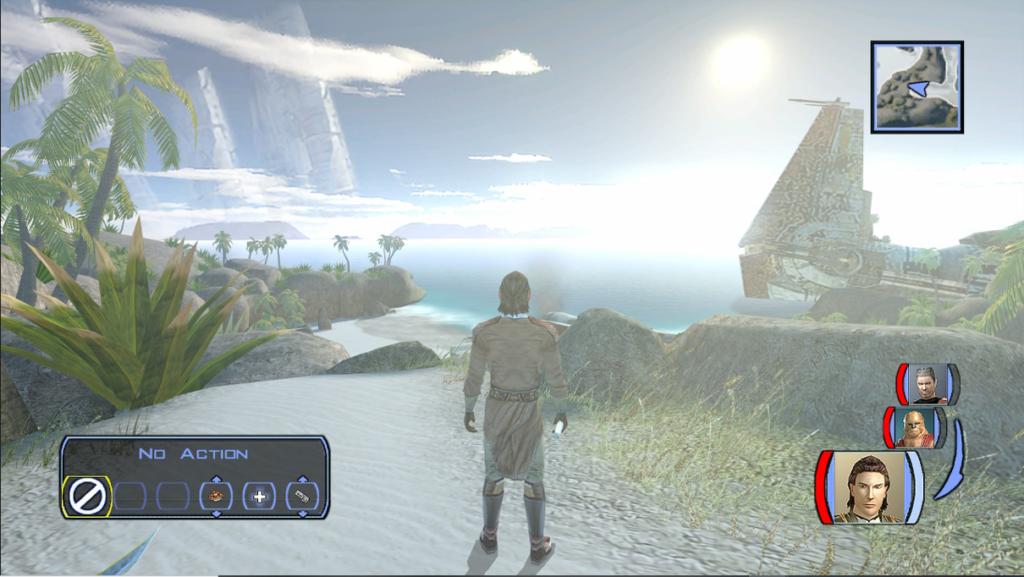
KOTOR was also a front runner for gaming in that it was a cinematic experience in the sense that it featured full voice acting in the main scenario and side quests, a majority of which holds up extremely well even by today’s standards. We have Bioware game staples such as Jennifer Hale and Rafael Sbarge lending their voices alongside legendary late actors John Cygan and Ed Asner. Even the voice acting of minor NPCs has held up extremely well.
Star Wars has never been slouchy when it came to music. John William’s work on the score of the original and prequel trilogy remain some of the most beloved musical scores in cinema. Initially most Star Wars games had minimal amounts of original compositions and instead opted to use William’s score. There are exceptions such as Shadows of the Empire or Republic Commando. But KOTOR differentiated itself by providing an entirely original score courtesy of Jeremy Soule. With the exception of the main Star Wars theme in the opening text crawl, every piece of music within KOTOR is an original composition. Not only are these compositions memorable but they also fit in quite nicely with William’s official work, granting the score a sense of authenticity. It would have been very easy for them to create a score that didn’t fit with the identity of Star Wars, but the fact that this score works well speaks to the ability and commitment of Soule to create something that fits within the universe.
Glitches & Quirks
Now while KOTOR is a masterpiece of a game, it is not perfect. I’d be remiss to bring up all of KOTOR’s fine points without bringing up some of the things that hold the game back. In some games you might find yourself unable to move because you’re caught in game geometry, but in KOTOR, characters occasionally get stuck moving from place to place. It happens rarely but it is easy to fix when it does, but it still throws me off when this happens. Additionally you can’t progress to another area if your companions aren’t in your immediate vicinity. Your AI companions are usually good at following close behind, but when they get stuck you have to take control of that character to get them unstuck. Bonus points if it happens when you’re charging into battle thinking you have backup, but your companions are stuck 15+ feet behind.
The environments are expansive and can take some time to travel across. To complement this you can fast-travel to your ship most of the time, but this is unavailable at the most inconvenient of times. I would have appreciated the ability to fast-travel to previously visited zones in order to cut down on time traveling from area to area. When playing the Xbox version on the 360 or Xbox One the game is subject to ghosting and the occasional freeze. These problems don’t exist in the PC or Nintendo Switch versions.
Conclusion
KOTOR is just as fun today as it was on release 20 years ago, it raised the bar for licensed Star Wars titles and made Bioware a household name for developing exceptional RPGs. With excellent writing and world design, dynamic companions, and a sweeping score KOTOR redefined party based RPGs and Star Wars games period. Knights of the Old Republic is a must play!
Dedicated in loving memory to John Cygan…



